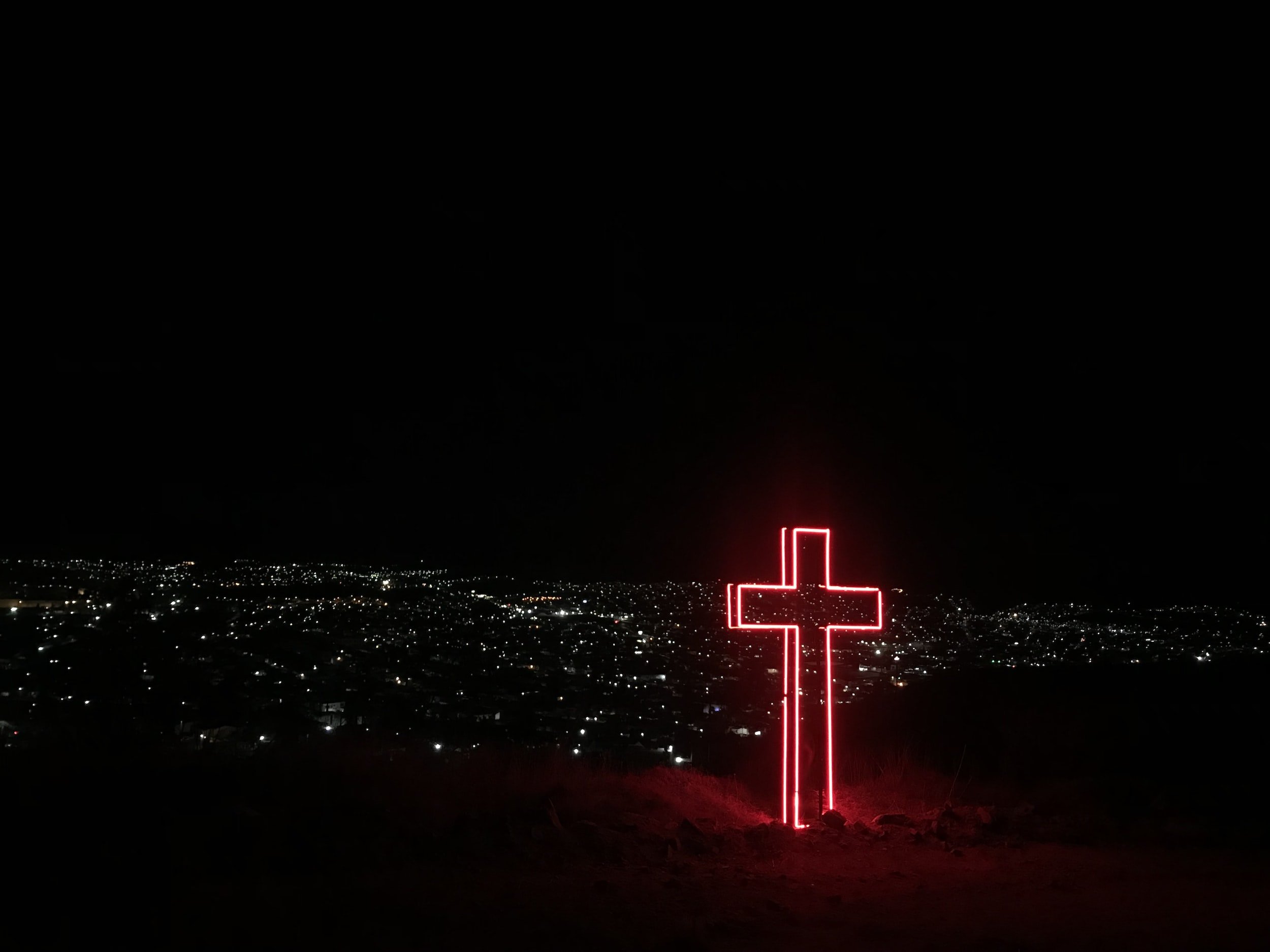
Psalm 8
To the choirmaster: according to The Gittith. A Psalm of David.
1 O Lord, our Lord,
how majestic is your name in all the earth!
You have set your glory above the heavens.
2 Out of the mouth of babies and infants,
you have established strength because of your foes,
to still the enemy and the avenger.
Never miss a story
3 When I look at your heavens, the work of your fingers,
the moon and the stars, which you have set in place,
4 what is man that you are mindful of him,
and the son of man that you care for him?
5 Yet you have made him a little lower than the heavenly beings
and crowned him with glory and honor.
6 You have given him dominion over the works of your hands;
you have put all things under his feet,
7 all sheep and oxen,
and also the beasts of the field,
8 the birds of the heavens, and the fish of the sea,
whatever passes along the paths of the seas.
9 O Lord, our Lord,
how majestic is your name in all the earth!
Praise His Majesty
This is a hymn that begins and ends with the same phrase: “O Lord, our Lord, how majestic is your name in all the earth!” Sometimes, when I read a hymn or verse about praising God, a thought involuntarily pops into my mind. “Were these praises written by successful people?” There are many such giants of the faith throughout history, whose faith was not only noteworthy, but also heart-satisfying. Those believers faced their challenges with faith and lived a life of stable trust. The world they describe is well-ordered, works according to God’s will, and is under his order. In that ecosystem, there are no surprises or fears. The Psalms themselves are filled with faith in creation, and the world is orderly, stable, reliable, and living. Because it is his will, God will manage all things. Humanity exists in a well-cared-for space.
>
”“How do we pray for our world – which is increasingly full of corruption – after singing hymns of a well-ordered world like that?”
But there is one question: how do we pray for our world – which is increasingly full of corruption – after singing hymns of a well-ordered world like that? This psalm speaks of humanity being crowned with glory and honor, ruling over all God has appointed as in their dominion: sheep, cattle, beasts, birds, and fish. (vv. 6 – 8) The Lord has manifested his glory and power in the creation of the world, but the enemy is also powerful, and is often seen in our daily lives.
The Cries of the Weak
The helplessness of nursing infants (v. 2) reminds us of this contrast between weakness and strength. The Holy Spirit was at work in the ordering of the psalms; Psalm 8 is placed in the psalter just after several psalms of lament (Psalms 3 – 7) that cry out to God for salvation. God often reminds us of both the strength of the enemy and the weakness of humanity.
“Out of the mouth of babies and infants, you have established strength because of your foes, to still the enemy and the avenger.” (v. 2) The strength spoken of here is just what many Bible commentators have called it: the strength to praise and to bear witness. In ancient times, God used the weak people of Israel to establish an army and a nation that manifested his power and glory. In the latter days, when the Lord Jesus was on his way to the temple in Jerusalem, small children cried out, “Hosanna to the Son of David!” Through their praise, the Savior and King was revealed. The same praise also revealed the enemy, as the scribes and Pharisees showed themselves as adversaries of God.
When the Lord came to us in the flesh, he came as an infant. Although he answered the temple teachers with wisdom at the age of 12, when he was younger, the Lord’s mouth was likely capable of nothing but crying. What can any child, big or small, do but cry when they face this mighty world?
The instructions for this psalm say the instrument to be used in it is “the Gittith,” the same instrument David received from a Gittite as he once fled in Gath. David was not the only one to flee; the Lord himself also fled – when he was an infant in Bethlehem, he was pursued by Herod and his family had to flee to the land of Egypt. I am not saying Jesus wept when he was on the run. I am saying that Jesus, like many other little children, was chased and bullied by this world. He identified with these infants, and his coming gives meaning to the death and weeping of all who are hunted down and killed by this world.
We believe in a great King from on high. Unlike other folk religions, we are not a group of churches who believe in “grace upon grace.” We believe in a God who will be with us in times of weakness, darkness, and loss. This is a God who understands the taste of our sorrow and our weakness.
>
”“We believe in a God who will be with us in times of weakness, darkness, and loss. This is a God who understands the taste of our sorrow and our weakness.”
The True Situation
The Psalms call out to awaken the self-deceived, begging them to honestly face reality and to stop fantasizing about a perfect life, because reality is not like that. The Psalms instead ask humans to nakedly come before God and face reality. Perhaps the words spoken in God’s presence will not be words of praise. This would take us away from the modern, comfortable, religious view, that everything is arranged and under control.
The believer is not in denial of darkness, but touches it, because the darkness itself is potentially life-building material. The believer does not do this in order to learn to weep, but so that they may put on Christ: for the praise that has survived tears is the true blessing of life. Only after experiencing the Lord can one truly believe that all creation will eventually submit to and serve him. Only after experiencing God can one have faith in what Psalm 8 promises at the end: that this world will ultimately bow at his feet, and utter from the heart: “O LORD, our Lord, how majestic is your name in all the earth!”
Wang Fuyong is a pseudonym for a pastor at a church in southwest China.
PRAYER
May the hearts of our church be broken by the urgent needs of our brothers and sisters and of the unsaved souls in this world, so that the Lord’s church may be filled with true belief and real hope in the praise of the Lord.

We are using the Psalms to guide our prayers for China
In 2022, our prayer movement is turning to the scriptural prayers found in the Psalms as we pray for the Chinese church. When you join our prayer movement, you will receive weekly prayer emails and a monthly newsletter so that you too can pray for our brothers and sisters in China.



































